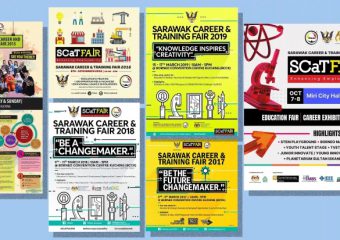Since time immemorial, we human beings have been telling stories in countless of ways.
As social creatures, we find ourselves emotionally engaged and connected when we share anecdotes and experiences as they tend to be more memorable than facts and figures.
Today, we discover stories beyond books, television and cinema. With our mobile devices in hand, we can easily find them in forms of social media posts, podcasts, online videos and other digital media.
Suffice to say, storytelling remains a timeless ability to have; some might even argue that in an era where most of us consume content, storytelling becomes a vital digital skill.
Learning how to tell stories effectively, especially through the use of digital technology, teaches us to become producers of digital content instead of just consumers.
As we discussed before on content creation, generating ideas and presenting them digitally help boost our creativity and imagination, as well as build the confidence to express and share perspectives of a community or our own.
We can cultivate our storytelling ability from as early as our years in school when we write essays, work on projects and do presentations, for it enhances our learning experience in understanding complex concepts and issues.
It also enables us to develop the knowledge and skills required to face the global digital economy, ranging from different types of literacy such as digital, technology and information, to essential soft skills including communication, collaboration and critical thinking.
These knowledge and skills will be crucial in our preparation to become highly employable in the job market, particularly when searching for tech jobs in fields involving digital media.
It’s worth noting that storytelling isn’t only useful in creating compelling digital content and improving our personal and professional competency.
When utilised well, storytelling can be a valuable tactic for us in attracting potential employers, specifically by providing context, action and results in our resume and during job interviews, as well as crafting our personal brand on social networking sites.
It also gives us the advantage as entrepreneurs building our business brand and strengthening our marketing capabilities in order to generate the interest of both our target customers and promising talents.
Understandably, not all of us are natural storytellers. Nevertheless, if you want to equip yourself better for the digital economy with the ability to tell stories, there are many ways to do it.
For instance, you can explore stories of different forms, genres, structures, styles, themes and subjects, or evaluate your stories and storytelling style as you present them orally or digitally.
Most importantly, as you experiment and practise consistently, always be genuine with your stories because these are the ones that your audience will remember you by.
This is a weekly column by SarawakYES! – an initiative driven by Faradale Media-M Sdn Bhd and supported by Angkatan Zaman Mansang (AZAM) Sarawak – to provide advice and stories on the topics of education and careers to support Sarawakians seeking to achieve their dreams. Join us on Facebook, Twitter, Instagram and YouTube.
This article first appeared on The Borneo Post, published in the print version on Saturday, October 12, 2019.
Photo by Arshad Sutar from Pexels.




